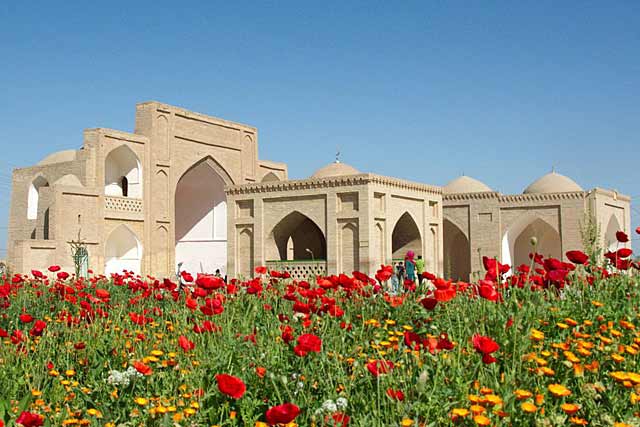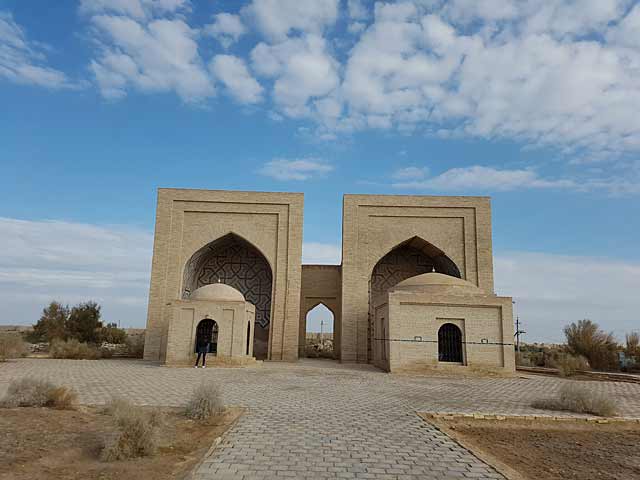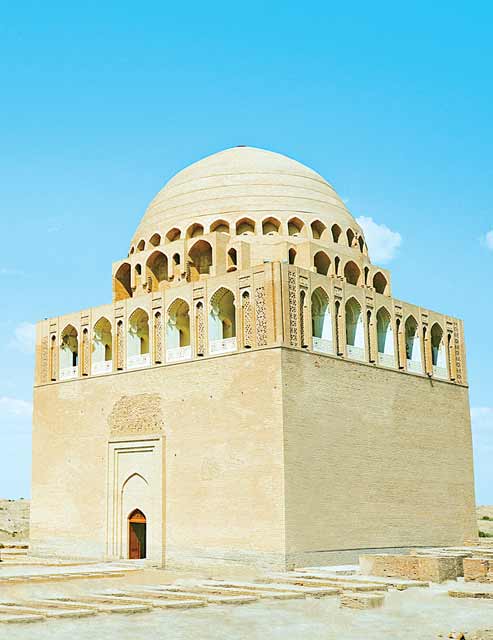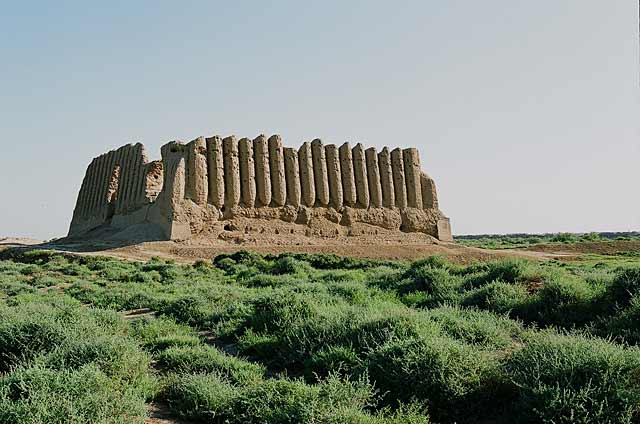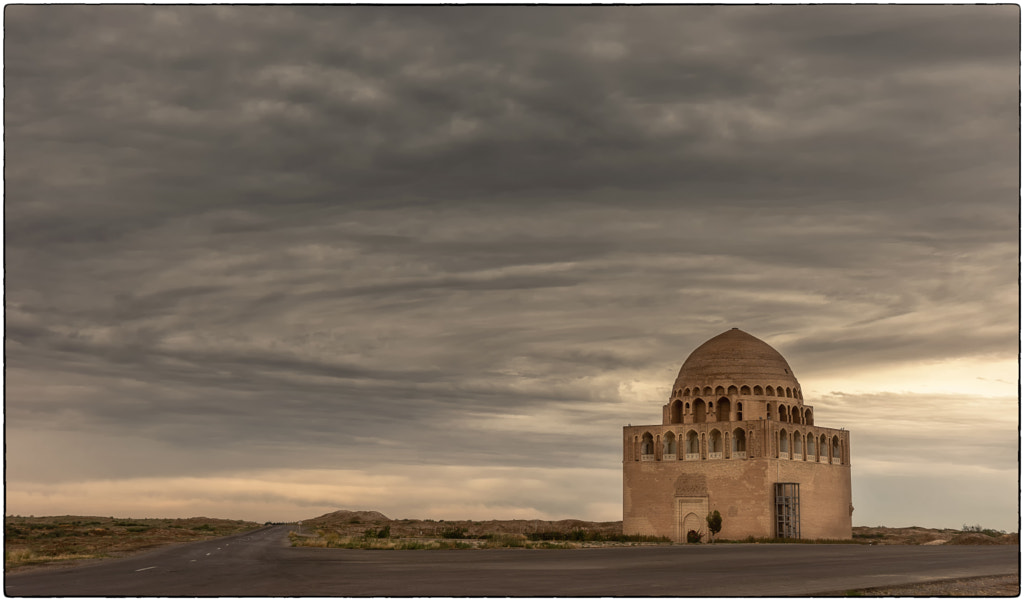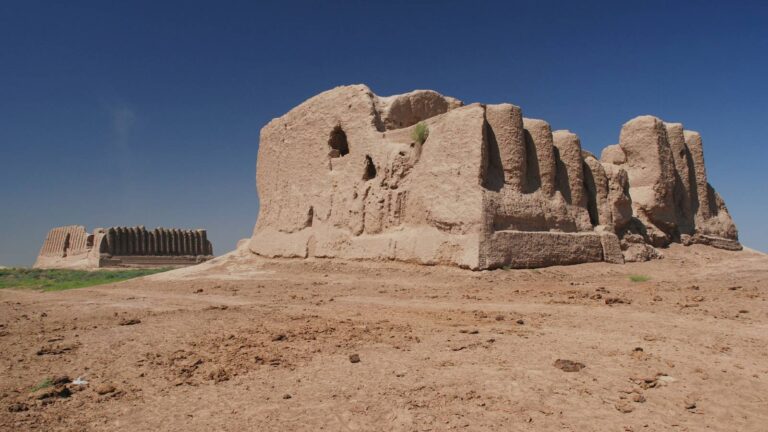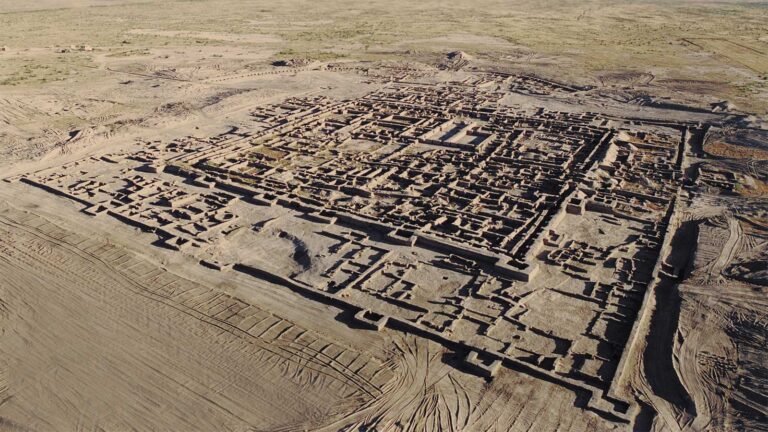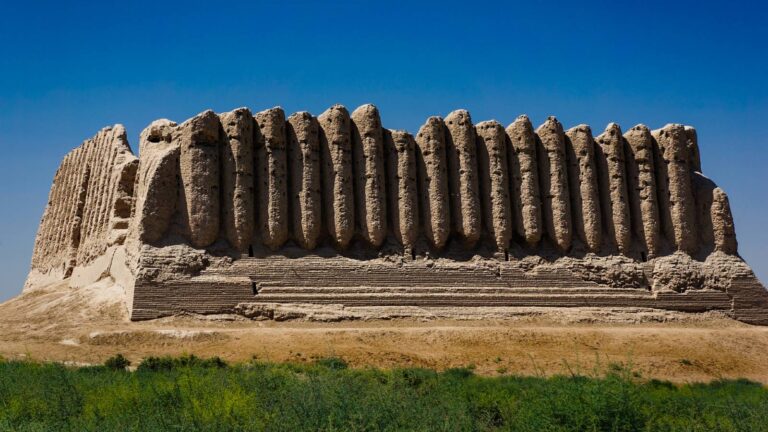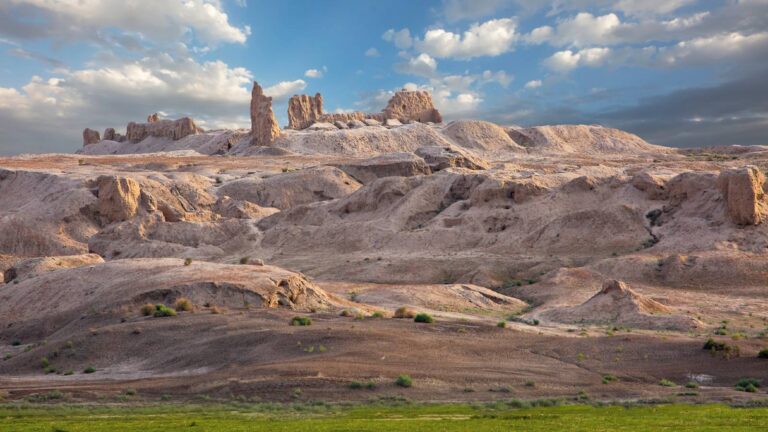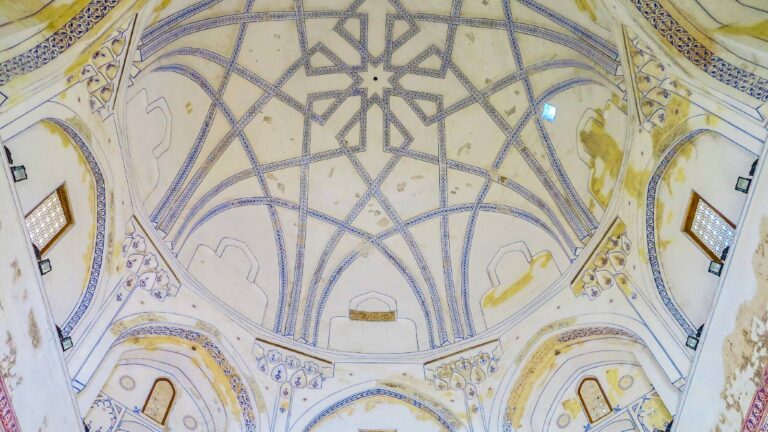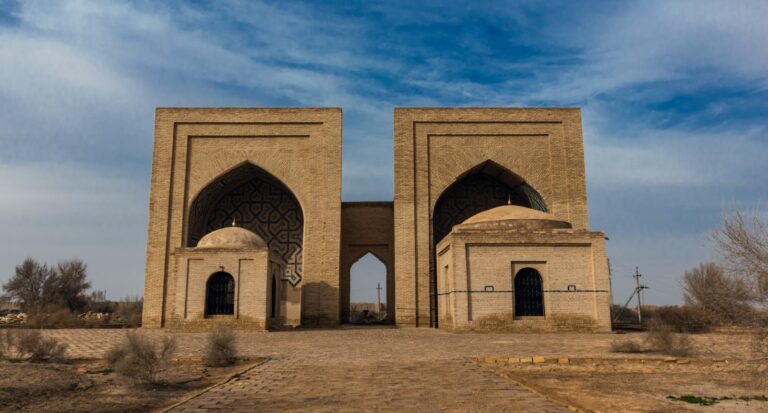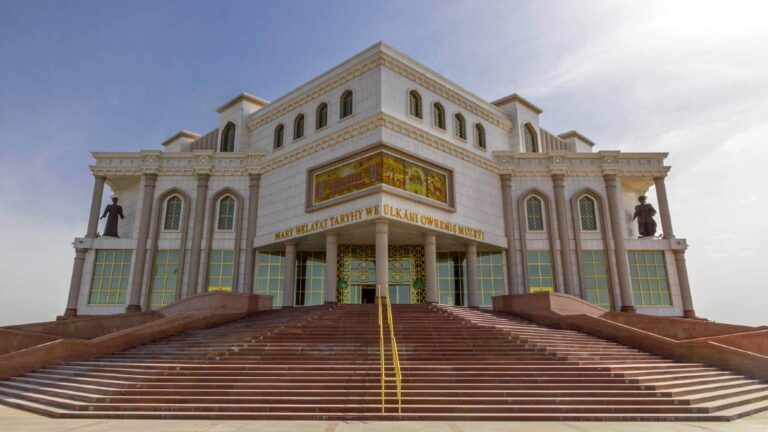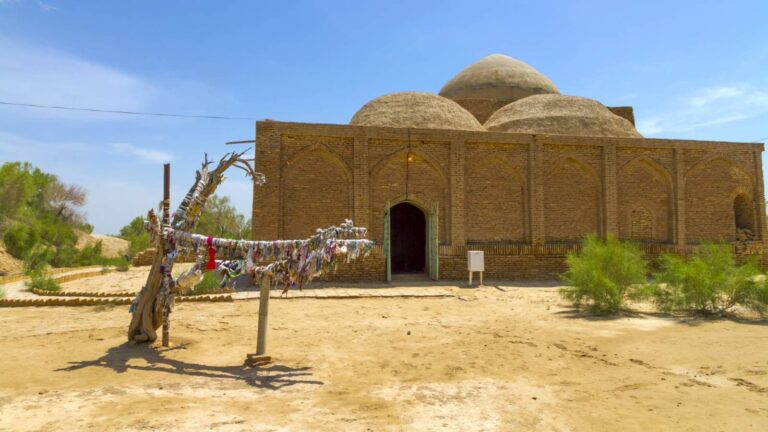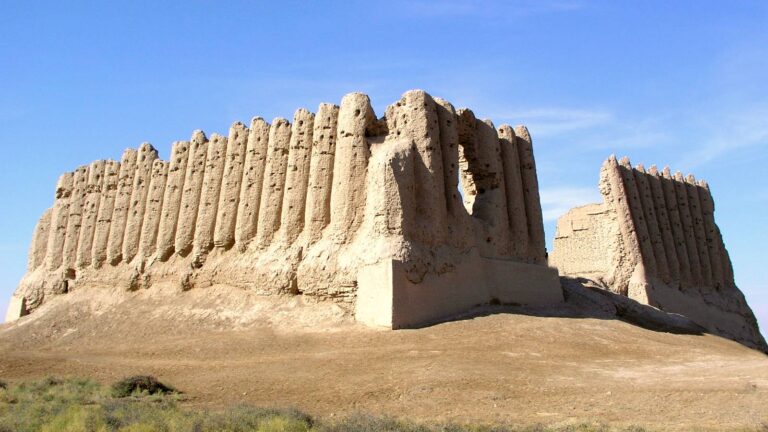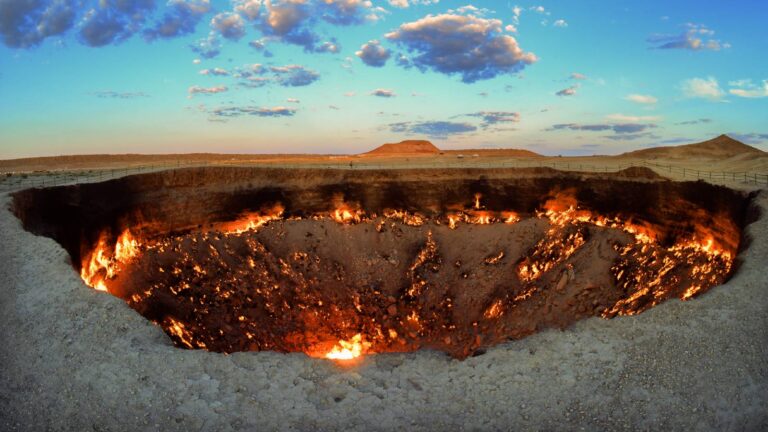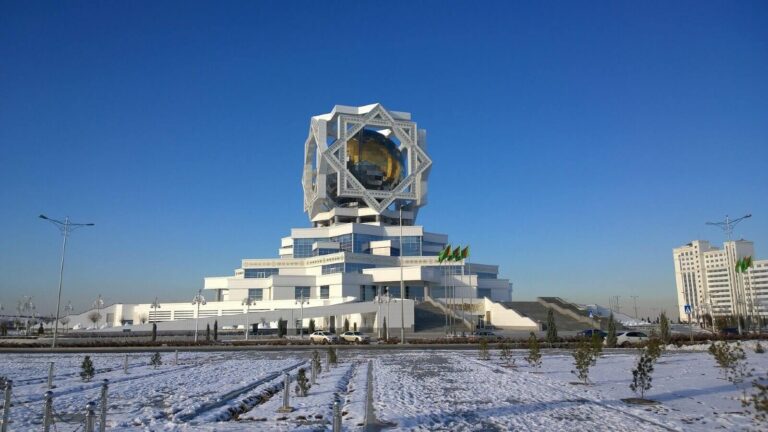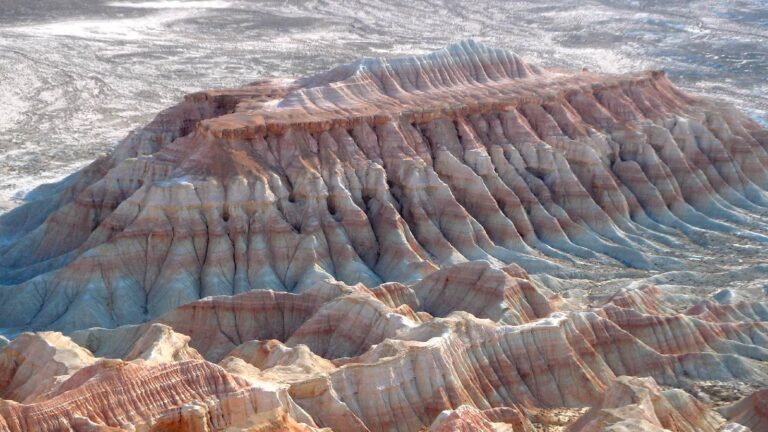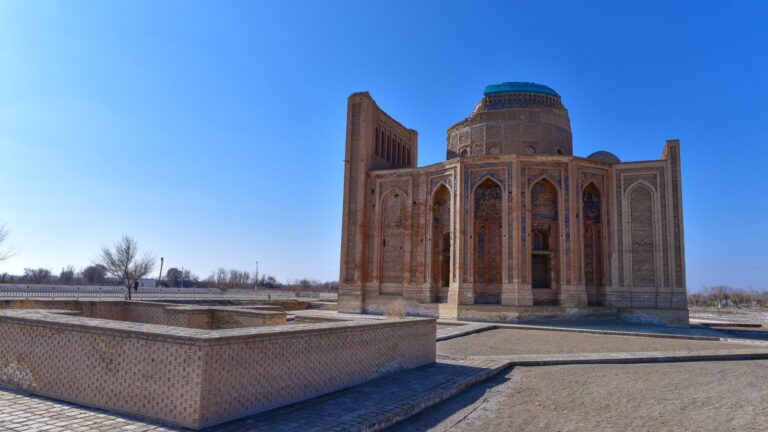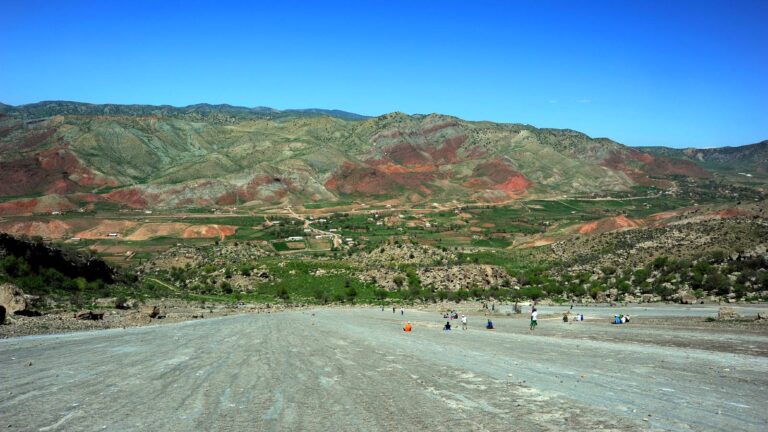The Region is accessible by air, railway and road transport.
Mary Velayat offers many exciting sightseeing opportunities for travelers. Things to do here include visiting most ancient center of the Orient culture, the Margush oasis city, and its numerous historical monuments, as like, the mausoleums of Sultan Sanjar and Muhammad ibn Zayed, the tombs of the associates, Yusuf Hemedani mosque and much more.
Merv, ancient city of Central Asia lying near the modern town of Mary, Mary region. It was the seat of a satrapy of the Persian Achaemenid Empire. Under the Arabs in the 7th century the city was rebuilt as the capital of Khorasan and served as a base for Muslim expansion into Central Asia and later China.
A great center of Islamic learning under the Abbasid caliphs, Merv attained the zenith of its glory as capital of the Seljuq sultan Sanjar and his successors. Destroyed by the Mongols in 1221, the city and its irrigation system were rebuilt in the 15th century, but it never regained its former prosperity. Merv was under the Tekke Turkmens when it was occupied by the Russians in 1884.
Many new song and music, folklore and dance groups have been created in Mary region, as like, Margiana, Altyn Asyr, Pendin Melodies and others.
- New Year Celebration- January 1
- International Women’s Day – March 8
- National Spring Festival – March 21-22
- State Flag and Constitution Day – May 18
- Independence Day – September 27
- International Day of Neutrality – December 12
- Eid al-Adha (Kurban-Bairam) – Date is determined according to the lunar calendar and is annually approved by decree of the President of Turkmenistan
- Victory Day – 9 May
- Ashgabat City Day – May 25
- Science Day – June 12
- Day of Knowledge and Student Youth – September 1
- Day of Workers of Culture and Art and poetry of Makhtumkuli – June 27
The following holidays and festivals are celebrated and held annually:
Day of Akhal-Teke horses and Turkmen Alabay, the Carpet Festival, Melon Festival, Harvest festival, Turkmen carpet Festival.
Mary velayat covers an area of 87.8 thousand square kilometers is located in the very south of Turkmenistan. The region borders in the west with the Akhal velayat, in the north and northeast with the Lebap velayat, and in the south with Afghanistan.
The climate is sharply continental. Summers are hot, dry and long. The average July temperature is 28-32 degrees. Winter is not cold. The average January temperature is 2.0 degrees. Precipitation ranges from 115 millimeters to 270 mm.
The economy is based on irrigated agriculture, particularly cotton cultivation, in the Murghab oasis and along the Karakum Canal; the breeding of Karakul sheep in the desert; and the Shatlyk natural gas deposit, which is one of the largest in Central Asia and the entire continent.

